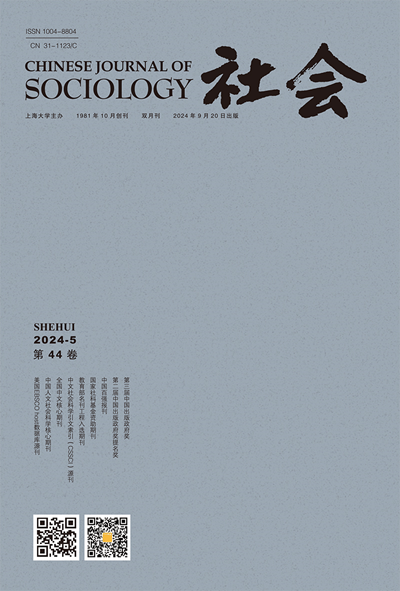Double-track governance in traditional Chinese society: Dialectics between the enfeoffment system of fiefdom and the bureaucratic prefectural system
IF 1.8
4区 社会学
Q2 SOCIOLOGY
引用次数: 0
Abstract
Beginning in the Yin-Zhou and Qin-Han periods, development of the Chinese imperial system revolved around the dialectical tension between the “enfeoffmental system of fiefdom” (fengjian zhi, or the fengjian system) and the bureaucratic prefectural system (junxian zhi, or the junxian system). In Fei Xiaotong’s words, this was a dual-track politics of the “power of the monarch” and the “power of the gentry”. Under the enfeoffmental system of fiefdom, the relationship between the monarch and his kinsfolk was governed by the Confucian hierarchical principle of “favoring the intimate” (qin-qin) and “respecting the superior” (zun-zun), and ritualized by the patriarchal order of clan, mourning rites, and ancestral worship. In addition, the “mandate of Heaven” solidified an organic relationship between the emperor and his subjects and became the foundation for monarchical rule. The bureaucratic prefectural system highlighted the historical change since the Warring States period, which had abolished the enfeoffmental fiefdom system and given birth to the concept of “all-under-Heaven” (gong tianxia). Thinkers like Wang Fuzhi and Gu Yanwu placed emphasis on the enfeoffmental system of fiefdom as a counterpart of to the bureaucratic prefectural system which helped break up the centralization of power and renew the debate on the dialectic between “public” and “private”. In sum, the enfeoffmental system of fiefdom in China still needs to be clarified through re-examining the Classics.中国传统社会的双轨治理:封地分封制度与官僚郡县制度的辩证
从殷周秦汉时期开始,中国帝制的发展就围绕着“封地分封制”(封简制)和官僚郡县制(郡县制)之间的辩证张力展开。用费孝通的话说,这是一场“君权”与“士绅权”的双轨政治。在封地分封制度下,君主与亲属的关系受儒家“亲亲”和“尊尊上”的等级原则的支配,并由氏族、丧礼和祖先崇拜的宗法秩序仪式化。此外,“天命”巩固了君臣之间的有机关系,成为君主统治的基础。官僚郡县制度凸显了战国以来的历史变革,废除了分封封地制度,催生了“天下”的概念(龚天下)。王夫之、顾炎武等思想家把封地分封制度作为官僚郡县制度的对应物,有助于打破中央集权,重新引发关于“公”与“私”辩证法的争论。总之,中国的封地分封制度还有待于通过重新审视经典来澄清。
本文章由计算机程序翻译,如有差异,请以英文原文为准。
求助全文
约1分钟内获得全文
求助全文
来源期刊

社会
Social Sciences-Social Sciences (all)
CiteScore
1.70
自引率
0.00%
发文量
6799
期刊介绍:
The Chinese Journal of Sociology is a peer reviewed, international journal with the following standards: 1. The purpose of the Journal is to publish (in the English language) articles, reviews and scholarly comment which have been judged worthy of publication by appropriate specialists and accepted by the University on studies relating to sociology. 2. The Journal will be international in the sense that it will seek, wherever possible, to publish material from authors with an international reputation and articles that are of interest to an international audience. 3. In pursuit of the above the journal shall: (i) draw on and include high quality work from the international community . The Journal shall include work representing the major areas of interest in sociology. (ii) avoid bias in favour of the interests of particular schools or directions of research or particular political or narrow disciplinary objectives to the exclusion of others; (iii) ensure that articles are written in a terminology and style which makes them intelligible, not merely within the context of a particular discipline or abstract mode, but across the domain of relevant disciplines.
 求助内容:
求助内容: 应助结果提醒方式:
应助结果提醒方式:


